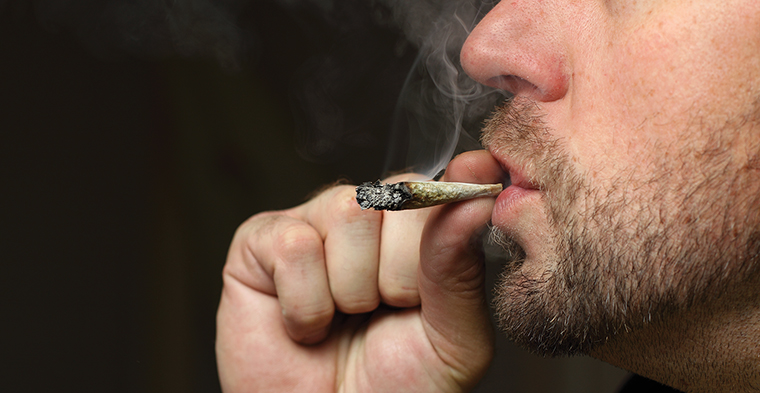Packing bongs, not heat
Medical marijuana
February 3, 2014
Illinois residents eligible to receive medical marijuana may have to choose between the right to own a handgun and their prescriptions.
The Illinois Department of Public Health proposed on Jan. 21 that a qualifying medical marijuana patient or caregiver may not own a firearm, even if they have a State Firearm Owner Identification card or concealed carry permit.
The IDPH is seeking public input on the proposal via MCPP.Illinois.gov through Feb. 7. The proposal will be submitted to legislators at the end of April. If enough of the public disapproves of the proposed rule, it can be changed, said Dan Linn, executive director of the Illinois Chapter of the National Organization for Reform of Marijuana Laws.
“Even if it isn’t changed, I think that you will probably see a court decision being made on it down the road anyway,” Linn said.
Patients may resort to purchasing marijuana illegally from the underground market in order to preserve their right to own firearms, he said.
Colleen Daley, executive director of the Illinois Council Against Handgun Violence, said the proposed rule is similar to a policy in the Right to Carry law that states when someone is under the influence of alcohol they may not carry firearms.
“I think it’s probably a reasonable measure,” Daley said. “I think the individuals who are on certain medicines shouldn’t be carrying firearms, the same way we don’t want individuals who are drinking [to do it].”
Daley said the guidelines for legalizing marijuana should be thoroughly evaluated.
Federal law states that anyone who is an unlawful user or addicted to a controlled substance is prohibited from shipping, receiving, transporting or possessing a firearm or ammunition. Although medicinal marijuana is now legalized in Illinois, federal law dictates that no exceptions will be made for medicinal marijuana patients, even if state law sanctions it, according to a Sept. 21, 2011 open letter from the U.S. Department of Justice.
Ali Nagib, assistant director of NORML, said the IDPH’s proposal is an illegitimate attempt to meet federal law criteria that seems ironic because state laws contradict the federal laws.
“The state is perfectly happy to write a 200-page bill that says you can violate federal law when it comes to cannabis and the Controlled Substances Act, but you can’t violate the Federal Gun Control act at the same time,” Nagib said.
Some gun rights advocates believe the proposal is a political effort to decrease the number of guns in Illinois.
“The state of Illinois under Gov. Pat Quinn seems to have an anti-gun bias,” said John Boch, president of Guns Save Life. “They would just assume to disarm as many people as possible, and they think that is going to make our streets safer when in fact all we have to do is look at Chicago, where they have strict gun control. We can all see that crime is out of control in Chicago.”
While the marijuana law went into effect Jan. 1—making Illinois one of 21 states to legalize medical cannabis—it will take the next couple of months to draft rules to accompany the law. The Medical Marijuana Law states that adults who have any of 33 specified medical conditions including cancer and AIDS may apply to get a patient registry identification card to purchase medicinal marijuana. With this card, an annual fee of $150 and a background check, patients can purchase 2.5 ounces of marijuana every two weeks.








